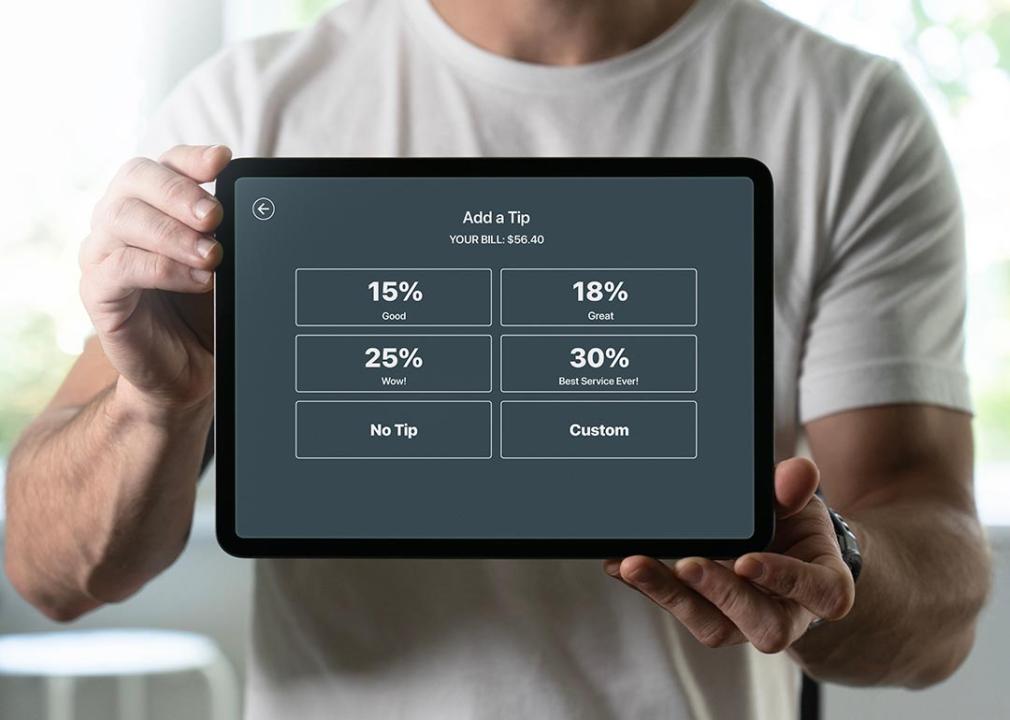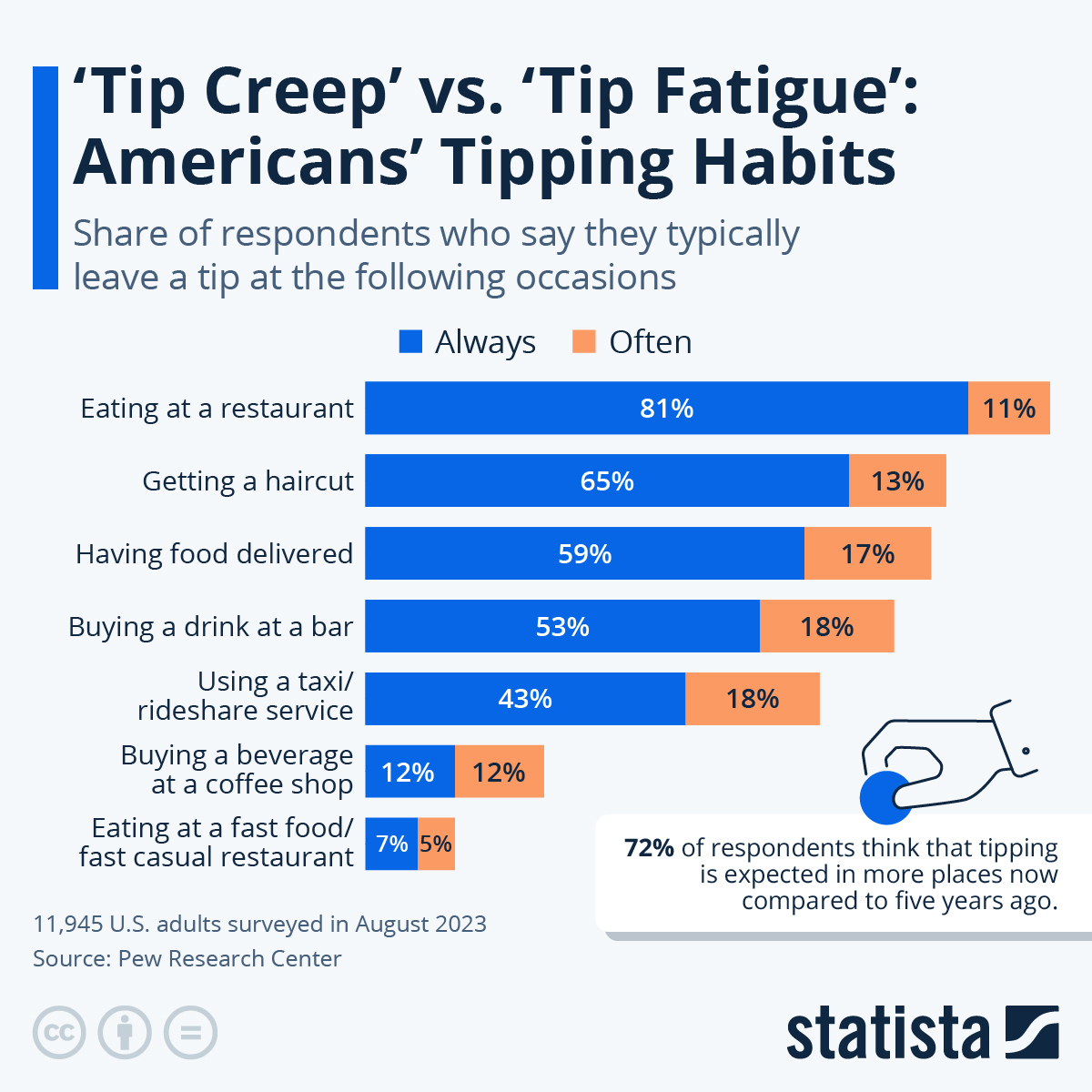
To tip or not to tip? Tipping is no longer recommended just at restaurants—there's the coffee shop, the bagel place, the dog groomer, the hairdresser, the Uber driver, the food delivery driver, and the list goes on. As the cost of essentially everything continues to rise, Way.com reports that adding a tip on top of high prices overwhelms at least 26% of Americans.
Pew Research Center recently surveyed 12,000 Americans on the current state of tipping and found that 81% of people always tip at restaurants, 65% after getting a haircut, and 59% after food delivery. Here's the breakdown of who is tipping and how often:

So, we know people are generally tipping, but here is where it gets interesting. 72% of people surveyed say tipping is expected in more places than 5 years ago. And 40% say they typically object to establishments' suggested tip amounts.
Most Americans (77%) say they are still tipping based on the quality of the service they receive. And the majority (57%) say they will tip 15% or less after a meal at a sit-down restaurant. Just 25% say they tip 20% or more while dining out.
That said, 36% of people say they are happy to tip, 33% are grateful to be able to tip, 31% felt pressured to provide a tip, 29% are excited to tip, and 26% felt overwhelmed by their perceived tipping responsibility. 23% of people admitted feeling guilty about tipping amounts, 23% say they feel embarrassed, and 20% admit to feeling confused by how much to tip.
Regarding cultural influences, Statista surveyed over 1,000 people worldwide about their thoughts on tipping. While 22% of Americans said tipping should not be expected, the number was much higher in the UK and Sweden, where over 40% said no to obligatory tipping.
So, where are experts falling in this new age of tipping overload? Brian Warrener, associate professor of hospitality management at Johnson and Wales University, recently told CBS MoneyWatch that he tips when he believes it is warranted. "If I haven't had much of a service interaction or great service, I have no problem not leaving a gratuity. It's not warranted in this case. You didn't earn it; you don't deserve it in this case … I don't feel like I have to leave a 20% tip on top of a cup of coffee at the local Starbucks."
As with many things, it seems that trusting your intuition and experience and not being influenced by outside pressures, tip jars, or digital suggestions is likely the best way to determine when and if you want to be gratuitous.
This story was produced by Way.com and reviewed and distributed by Stacker Media.